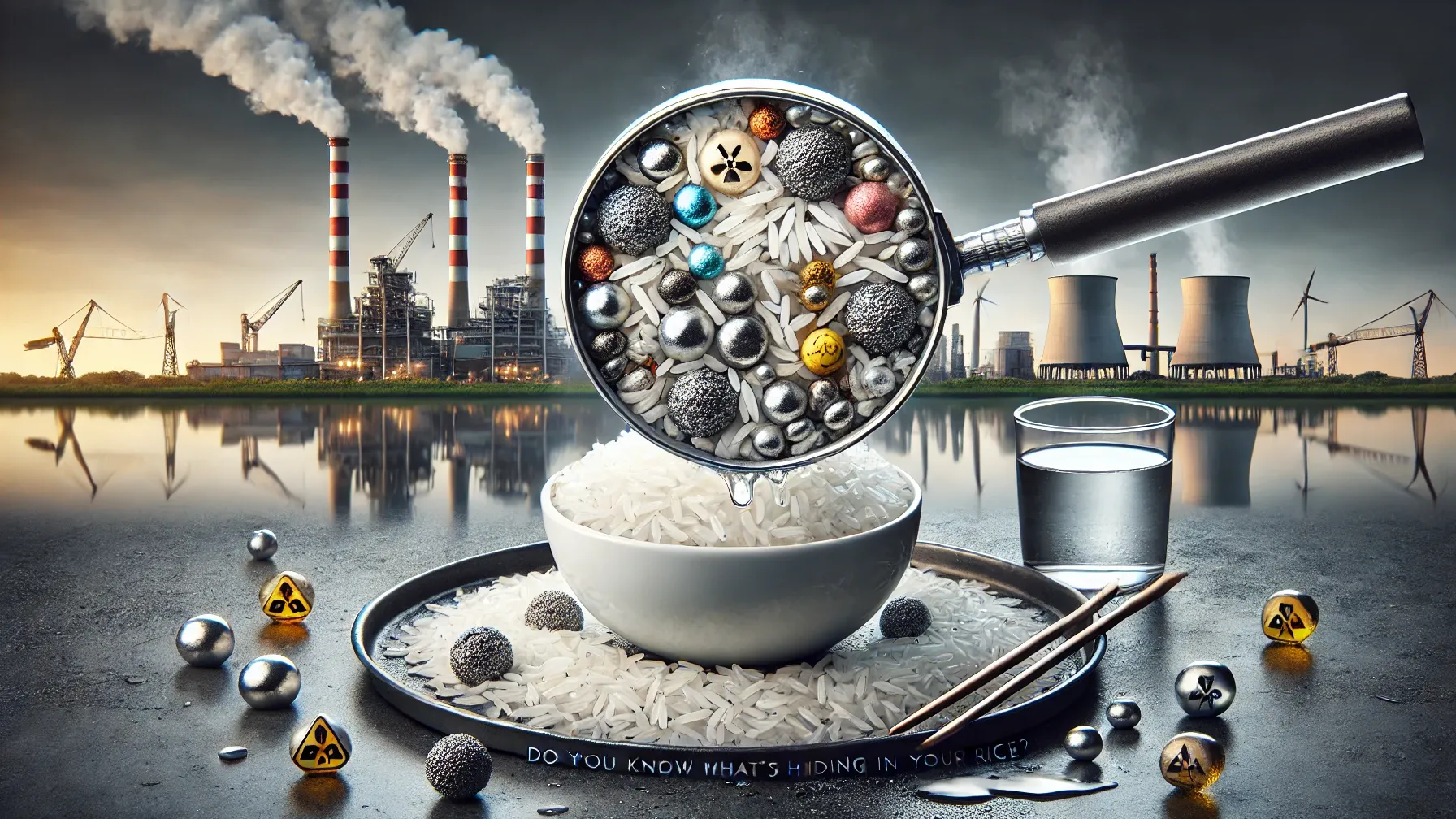Are you eating heavy metals with your rice?
Mar 10, 2025
Do You Know What’s Hiding in Your Rice?
Would you ever guess that your comforting bowl of steaming rice might be carrying a hidden health risk?
Most rice—regardless of type or origin—contains heavy metals like arsenic, lead, and mercury. But how does this happen?
With rapid industrialization and a relentless pursuit of profits, industrial waste has polluted groundwater to alarming levels—so much so that reversing the damage may no longer be possible. And here’s the shocking truth: even organically grown rice is not immune. While organic rice spares you from additional pesticides and fertilizers, it still absorbs heavy metals from contaminated water, just like conventional rice.
These toxic metals don’t easily leave the body and have been linked to serious health concerns. According to the National Institutes of Health (NIH), heavy metal exposure is associated with metabolic disorders, including thyroid dysfunction, type 2 diabetes, and metabolic syndrome—a cluster of conditions that increase the risk of heart disease, stroke, and diabetes. Alarmingly, the worldwide rise in these diseases cannot be fully explained by diet and lifestyle alone; environmental toxins play a significant role.
So, what can we do? Many of us rely on rice and rice-based products—especially those following a gluten-free diet—but reducing exposure is crucial.
Some experts recommend a simple detoxification method to lower heavy metal content in rice:
- Soak Overnight – Submerge the rice in at least two inches of water and let it sit overnight.
- Drain & Resoak – Discard the soaking water completely. Add fresh water and soak for another 30 minutes.
- Scrub & Rinse – Gently rub the grains between your palms, then rinse thoroughly.
- Final Rinse – Soak for another 10 minutes and rinse well. Studies suggest that a 30-minute rinse can remove up to 80% of surface toxins.
- Cook with Care – Use fresh water to cook the rice, adding a pinch of turmeric, black pepper, and sea salt to further support detoxification.
Being mindful of what’s in our food is one of the best ways to protect our long-term health. While rice may be a staple, understanding its risks—and how to minimize them—can empower us to make healthier choices.
Stay connected with news and updates!
Join our mailing list to receive the latest news and updates from our team.
Don't worry, your information will not be shared.

